- Bernard Preston homepage
- Worm farms
- Operation End Waste
Operation end waste
Operation end waste begins in the home with each and every one of us.
It is a question that hit home when I visited the local greengrocer looking for extra waste for our hens.
I was astonished at the amount of edible food that goes out the backdoor simply because it has a small blemish; the housewives then shun it. Or the sell-by date has been passed.
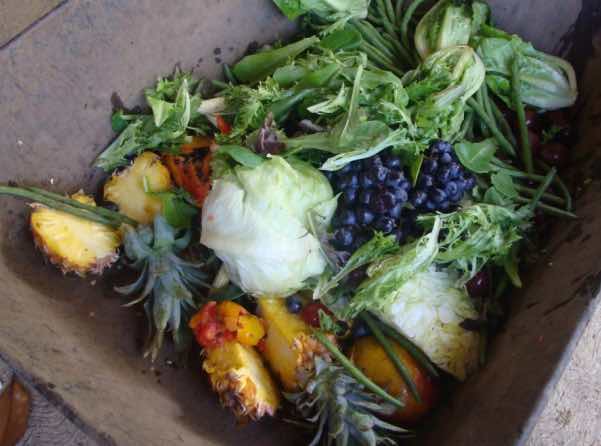
Introduction
Then I started looking at what went out our back-door; now it all goes to the compost, the hens and often the worm farms.
Actually it started before that; whilst cycling through the polders of Holland I regularly noticed a mountain of apples that had fallen in the orchards after a gale. Out of curiosity I checked them out; most were completely edible yet would end up in some sort of landfill.
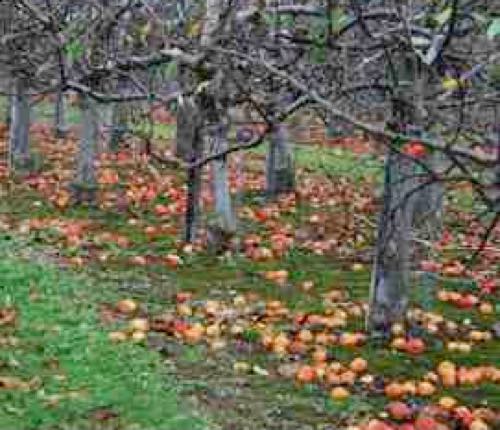
This page was last updated by Bernard Preston on 6th February, 2024.
It was reinforced again when I watched a BBC programme on the EU standards set in Brussels on the shape and size that a broccoli-head must conform to in order for it to be saleable; and a poor farmer who went insolvent because much of his crop was slightly too big or small.
The queen of the table was left to rot in the fields simply because she was under or oversized.
Oddly the richest source of glucoraphanin, the phytochemical that is most profoundly involved in the prevention of malignant disease, is far less abundant in the main head; but in the little florets from the branching broccoli that follow. You will rarely find them in the shops.
Researchers tell us some interesting facts.
- A quarter of the food farmers grow for human consumption never reaches the supermarket.
- And a third of our food either goes off at the market or is discarded by the housewife.
- And much is so refined and processed by the millers and food industry in general that most of the phytonutrients that prevent disease and promote well-being have been extracted.
Our personal response to this international tragedy was in the first-place never again to reject food simply because of some little blemish; barter about the price by all means.
Secondly we decided to try very hard not to throw away any food; cook the right amount and finish any leftovers the next day.
Thirdly we bought a wheat-grinder for 100% wholemeal, made the decision to bake our own bread and to purchase as little processed food as possible. Real flour that contains all the lignans, vitamins and oils is virtually unavailable in shops.
Copy and paste "healthy flour" into Site Search in the main menu for more information.
Operation end waste
Operation end waste is a moral dilemma faced by all concerned with whether our grandchildren will have a habitable planet to live on. Food processing is indivisibly tied to the production of polystyrene and plastic. Our nosh has to be protected from the oxygen in the air that starts the natural process of decay once the cabbage is sliced, the butternut peeled or the antioxidants have been extracted; for example the vitamin E in flour.
Refined food, plastic waste and landfills are all central to these issues; and oceans utterly polluted are part of the same problem. Humans who are too busy with more important matters.
We have become so consumed with the business of this world that we leave no time for care of the soul and the body; or the planet.
We call it a Cyan Zone issue, caring for both blue and green matters; our own well-being and that of Mother Earth.
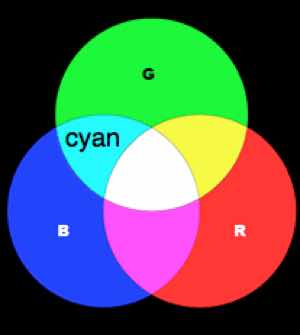
It is quite odd and in fact a mark of our ignorance that we will reject an apple that a bird has pecked but happily swallow food loaded with toxic preservatives, flavour-enhancers and artificial colouring.
Is that simply because they are not visible?
We will happily send a polystyrene fast-food container to the landfill, but complain bitterly if it ends up lying on the beach next to us.
We decided that operation food waste was not a problem so colossal that we could do nothing; instead we made a start in small ways to become part of the solution, rather contributing to yet more to the filth.
Sorting our own waste
The first step was sorting the waste from our own home into that which was recyclable and that which could be used in some way. Uneaten food went to the dogs, chickens and worms; and not to the landfill. We started a compost pile for cabbage leaves, wilted lettuce and mouldy carrots.
Raised garden beds are our latest passion; they are really just permanent compost heaps.
The first problem was struck here. Cooked food does not decay normally in a compost heap and attracts vermin; more about that later.
"It is the greatest freedom because if I do nothing, nothing will happen; if I do something, anything is possible."
- Pieter-Dirk Uys
Hens and earthworms
The next steps occurred, one at a time, as we slowly found ourselves becoming greenies; first there was the acquisition of half a dozen hens for their free range eggs. They started getting the kitchen waste.
Next was the wonder of worm farms to rear creepy-crawlies; they have an insatiable appetite, consuming their own weight every day; they will take care of the cooked food that has no place in the compost pile.
The traditional purpose of the worm farms is the production of so called wee for your vegetables; but we used them rather for protein for the hens. Soon it became apparent there would be something else on the agenda; operation end waste.
The overflow from the kitchen soon proved insufficient for the creepy crawlies; despite feeding a thousand or so worms every Saturday to the hens, they were doubling in numbers every month.
They needed more food.
And here lies the essential purpose of this page; the unbelievable waste of usable fruit and vegetables from the local greengrocer that was perfectly edible for our hens and worms.
Going through what they threw out provided not only a plentiful supply of food for the hens and worms but a sickening of the stomach as I began to appreciate the enormity of the waste problem.
Around most food there is a crust of sorts that prevents oxygen getting to the inner core. A potato and butternut have a thin skin, a watermelon has a rather thicker outer coating and even an apple is protected by its own outer garment. A grain of wheat is surrounded by a hard outer coating called the bran. That is where the precious lignans and many vitamins and minerals are to be found; and nearly half of the protein.
I soon realised from the bags of trash that humans have become so lazy to deal with, or too busy to peel their own butternut, shred their own cabbage for coleslaw and slice their own beans. We cost our time at so many dollars per hour, and it makes apparent sense to get someone else to do these chores.
But there is a problem; in fact two. Firstly, unless we get to the supermarket within a reasonable period, the skinned butternut, watermelon, pineapple, and so on have started to deteriorate; once oxygen gets to them, the shelf life is seriously reduced; toxic breakdown products start to build.
- We are eating foods that have lost their antioxidants and the protection they give us against serious disease.
- It is sent to the garbage in a fraction of the time if we do not buy it; little wonder a third of the food grown is never actually eaten.
- In an attempt to reduce the effect of oxygen, supermarkets wrap it in plastic; a mountain of packaging ends up in our landfills and oceans.
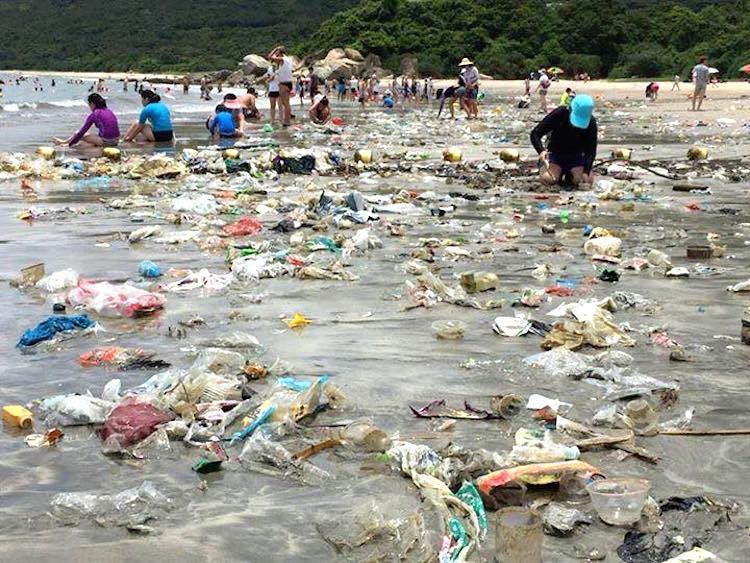
Lost our roots
It is become very apparent to me that we have lost our roots that connected us with the soil. Thinking we are clever in purchasing OJ instead of squeezing oranges, making Speedy Mash instead of peeling and cooking our own potatoes and eating bagels, we have succumbed to malignant disease, arthritis and bucketloads of pills; and umpteen visits to the doctor and surgeon.
Cookies, scrumptious chocolate cakes and commercial bread that are devoid of the minerals, vitamins and lignans that give us sparkling good health have completely undermined our wellness. Enter operation end waste.
It is no wonder that wide-eyed and bushy tailed belong to the distant past. Is it any wonder than recent research in the UK shows that folk feel good less than 50% of the time? And 61pc have accepted that daily pain is their lot.
Astonishingly 42% believe it's too expensive to start eating better, taking more sleep and drinking more water; and going to bed earlier; and 40pc believe it just takes too much time[2].
Enter returning to the food that your grandmother once served. Is it any wonder that the many countries like the United States have slipped to below 40th in the list of healthiest nations?
My own native South Africa is even worse, now officially the most unhealthy country in the world. Though that is in part because we love to have multiple sexual partners; AIDS is the number one killer, but obesity and stroke are not far behind.
Diabetes, heart disease, and tumours have become in most civilised countries the norm; and in my profession soaring arthritis, pain and inflammation.
It is all part of a very uncivil worldview; operation end waste is for each and every family. Yes, it does take time but it leads directly to growing your own food and a new lifestyle; and a lot less hours consulting doctors.
Operation end waste

Operation end waste will never get off the ground until we all collectively take responsibility for the way we are destroying our planet. Oceans which will within a few short years will have a greater tonnage of plastic than fish are directly connected with the fact that a third of our food is entirely wasted; not to mention the pain and disabling disease that soars to new heights.
It is time to wean off plastic; it ends up in landfills and on our beaches.
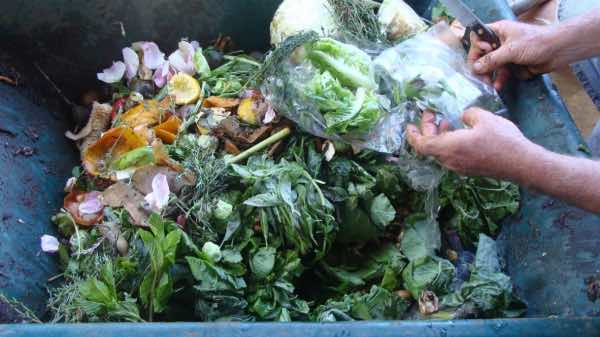
It all started with a mission to find more food for the rainbow worm farm experiments. That was successful but it lead inexorably to an involvement in the race to end waste.
I will not pretend this is in any way pleasant or fun; frankly it is disgusting and I am not suggesting you join me. I often ask myself why I continue with it; I find a strange and inexplicable pleasure in removing waste-food from its packaging, recycling the plastic and polystyrene and feeding the scraps to the hens and worms.
The hens are quite particular. They will not touch anything that has begun to decay but will enjoy food still in its outer coating, like a banana that has gone a bit soft; once you remove that skin they won't touch it. The worms on the other hand are not in the slightest bit fussy; it is not for nothing that their name is fetida.
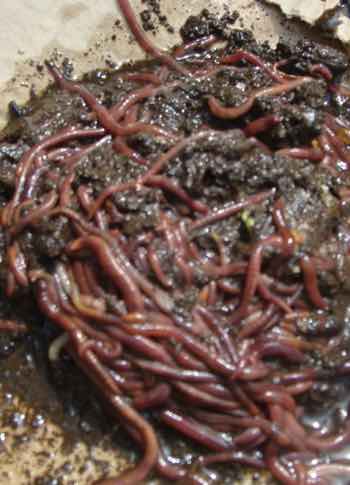
Every Thursday is a Thanksgiving Feast for the hens; and Saturdays are operation end waste for Bernard Preston.
Where to start?
When faced with a mountain seemingly too great for any person, such as operation end waste we look to the small things. Where can we start? Never drop a glass bottle in the garbage destined for a landfill; recycle it.
Operation end waste must begin in every home.
Never buy half a watermelon wrapped in single-use plastic; rather a whole and share it with your neighbour or a beggar on the street corner.
Do your level best not to purchase anything wrapped in plastic; and do your utmost to reuse it. Never send it to landfill; recycle it.
The reasonably simple first step is starting a compost pile for all your kitchen waste; the better part makes best chicken feed.
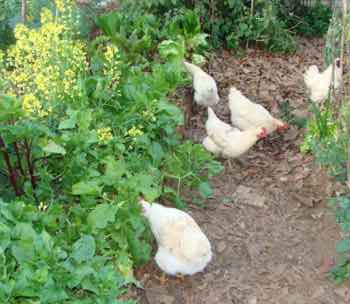
At the heart of operation end waste is a belief that we are on holy ground; understanding food as medicine, it is life makes us reluctant to trash our leftovers. We handle it with care.
When browsing use right click and Open Link in New Tab, or you may get a bad gateway signal.
Newsletter
Our newsletter is entitled "create a cyan zone" at your home, preserving both yourself and Mother Earth for future generations; and the family too, of course. We promise not to spam you with daily emails promoting various products. You may get an occasional nudge to buy one of my books.
Here are the back issues.
- Lifestyle and ideal body weight
- What are ultra-processed foods?
- Investing in long-term health
- Diseases from plastic exposure
- Intensive lifestyle management for obesity has limited value
- A world largely devoid of Parkinson's Disease
- The impact of friendly bacteria in the tum on the prevention of cancer
- There's a hole in the bucket
- Everyone is talking about weight loss drugs
- Pull the sweet tooth
- If you suffer from heartburn plant a susu
- Refined maize meal and stunting
- Should agriculture and industry get priority for water and electricity?
- Nature is calling
- Mill your own flour
- Bake your own sourdough bread
- Microplastics from our water
- Alternative types of water storage
- Wear your clothes out
- Comfort foods
- Create a bee-friendly environment
- Go to bed slightly hungry
- Keep bees
- Blue zone folk are religious
- Reduce plastic waste
- Family is important
- What can go in compost?
- Grow broad beans for longevity
- Harvest and store sunshine
- Blue zone exercise
- Harvest and store your rainwater
- Create a cyan zone at your home
Did you find this page interesting? How about forwarding it to a friendly book or food junkie? Better still, a social media tick would help.
- Bernard Preston homepage
- Worm farms
- Operation End Waste
Address:
56 Groenekloof Rd,
Hilton, KZN
South Africa
Website:
https://www.bernard-preston.com